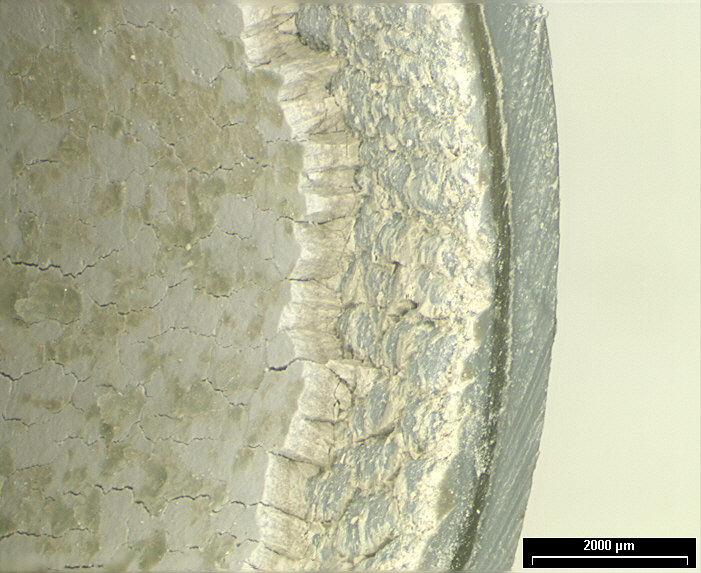Environmental Stress Cracking of Plastics and Coatings
 Environmental stress cracking ESC leads to the embrittlement of polymers and is a common cause of premature brittle failure in thermoplastics. If a material has contact with an incompatible solvent or compound when it is under stress or contains residual stress from manufacturing such as injection moulding or extrusion it can accelerate the crazing process, even when the material is no longer under apparent stress. This can ultimately lead to a product having a shortened lifetime.
Environmental stress cracking ESC leads to the embrittlement of polymers and is a common cause of premature brittle failure in thermoplastics. If a material has contact with an incompatible solvent or compound when it is under stress or contains residual stress from manufacturing such as injection moulding or extrusion it can accelerate the crazing process, even when the material is no longer under apparent stress. This can ultimately lead to a product having a shortened lifetime.
The rate of environmental stress cracking is dependent on factors such as the polymer's chemical formulation, bonding, crystallinity, surface roughness, molecular weight and residual stress. It also depends on the liquid reagent's chemical nature and concentration, the temperature of the system and the strain rate.
Examples of stress cracking agents include paints, adhesives, cleaning agents, lubricants, mould release agents, plasticisers, aerosol sprays and oils.
LPD Lab Services typically can evaluate ESC:
- SEM/EDX analysis of the fracture surface to look for signs of residual stress or crazing or to identify key surface contaminants or residues.
- Investigation of cracked plastic components such as ABS and polycarbonate PC cracking associated with cleaning and sterilising agent use.
- Failure surface analysis by XPS to look for residues of biocides promoting ESC.
- Identification of potential contaminants which may contribute to environmental stress cracking using FTIR or GC-MS analysis and extraction techniques.
- DSC analysis to assess manufacturing residual stress in polymers from moulding process using thermal signatures of stress relief.
- DSC screening of batches of moulded parts to check for residual stress from poor moulding and ineffective stress relief thermal treatments to avoid enhanced solvent induced ESC.
Once the cracking mechanism is understood, advice can be given to the customer on possible preventive measures and product enhancements to reduce or eliminate impact.

